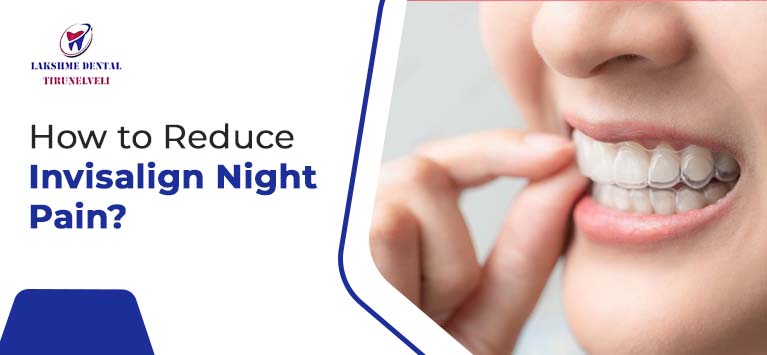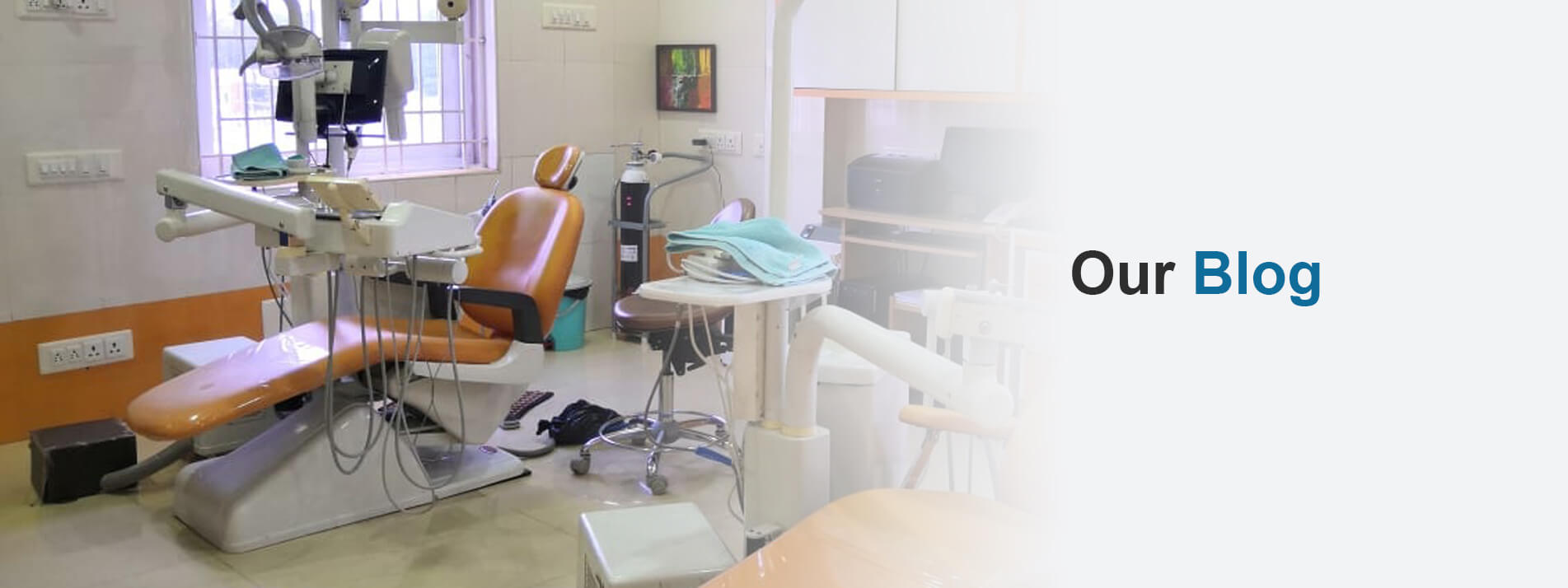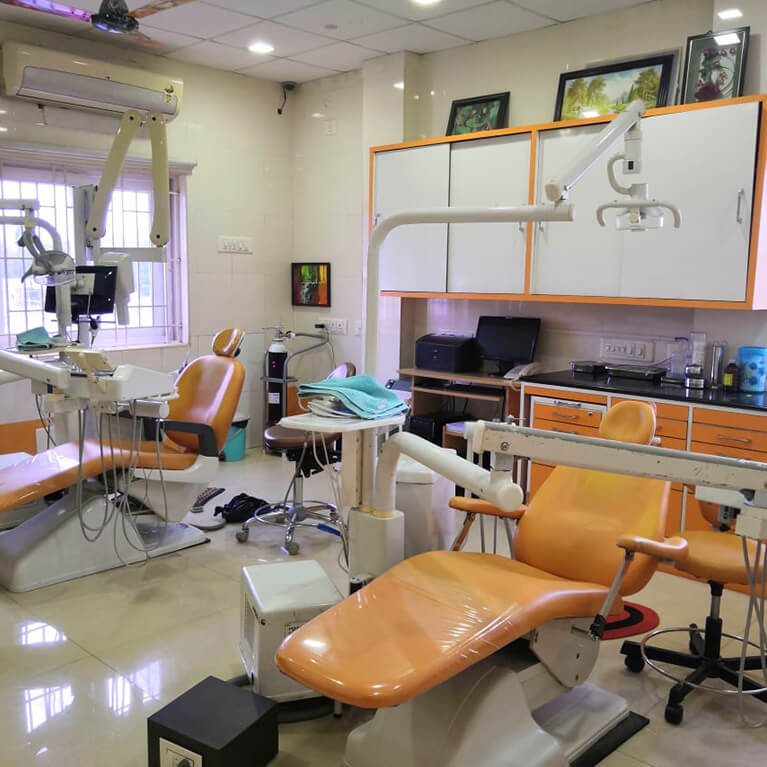
How to Reduce Invisalign Night Pain?
Are you currently undergoing the transformative journey of straightening your teeth with Invisalign? However, you’re not alone if you’re experiencing discomfort, especially at night. Many individuals encounter discomfort during their Invisalign treatment, particularly when they first start wearing aligners or switch to a new set. There are several strategies you can employ to alleviate invisalign pain at night. This guide will explore practical tips and techniques to help you reduce Invisalign pain. So you can enjoy a peaceful sleep and wake up feeling rejuvenated.
Understanding Invisalign Night Pain
Firstly, understand why you might experience discomfort at night while wearing Invisalign aligners. Typically, this discomfort arises due to the pressure exerted on your teeth. It happens as the aligners gradually shift them into the desired position. This pressure can cause temporary soreness. You can feel it, especially during the initial stages of treatment or when switching to a new set of aligners. Some individuals may also experience irritation from the edges of the aligners pressing against the gums or tongue. This leads to further discomfort & tooth sensitivity particularly during sleep.
Physiology of Invisalign Pain
Being new to the aligners can cause either generalised or localized pain in teeth. If you experience localised pain it can be due to the sharp edges of aligners. You can visit your dentist & address this issue by adjusting the edges. Generalised pain is normal your tissue around gums need to adapt to the aligners. Try sleeping on your back as it reduces the generalised pressure caused by invisalign and provide relief to your pain. Always change new set of aligners before bedtime to prevent or reduce the intensity of pain.
5 Home Remedies for Invisalign Tooth Pain
Nighttime pain due to Invisalign can disrupt sleep and leave you feeling fatigued during the day. However, there’s hope! In this segment, we’ll delve into five practical strategies to alleviate Invisalign night pain. These tips will ensure you enjoy uninterrupted sleep and wake up feeling refreshed. From maintaining impeccable oral hygiene to utilizing orthodontic wax for irritation, these simple yet impactful methods enhance your treatment journey’s comfort and ease. Now, explore how to bid farewell to nighttime discomfort and embrace a more comfortable Invisalign experience.
1. Maintain Proper Oral Hygiene
One of the fundamental aspects of managing Invisalign pain at night, is maintaining excellent oral hygiene. Proper oral hygiene not only promotes overall dental health. It can also help alleviate discomfort by keeping your mouth clean and free from irritants. Here are some essential tips for maintaining optimal oral hygiene during Invisalign treatment:
Brush and Floss Regularly
Brush your teeth after every meal and snack. Doing this prevents food particles from getting trapped in your aligners, which can contribute to bacterial growth and discomfort. Furthermore, flossing is crucial for removing plaque and debris between your teeth and the gum line.
Clean Your Aligners
Clean your aligners regularly using a soft-bristled toothbrush and clear antibacterial soap or the specialized Invisalign cleaning crystals recommended by your orthodontist. Avoid using toothpaste, as it may contain abrasives that could potentially damage the aligners.
Rinse with Mouthwash
Rinse your mouth with an alcohol-free, antibacterial mouthwash to help kill bacteria and freshen your breath. Besides, it reduces inflammation or irritation in your mouth, relieving discomfort.
By maintaining proper oral hygiene practices, you can minimize the risk of bacterial buildup and irritation. And you will ultimately reduce the likelihood of experiencing night pain associated with your Invisalign treatment.
2. Stay Hydrated Throughout the Day
Hydration plays a vital role in overall health, including oral health. It can significantly impact your comfort level during Invisalign treatment, especially at night. Here’s why staying hydrated is essential and how it can help alleviate night pain:
Prevents Dry Mouth
Dehydration can lead to dry mouth, which may exacerbate discomfort caused by Invisalign aligners rubbing against the gums or tongue. Stay adequately hydrated by ensuring you drink enough water throughout the day. Doing so can help maintain saliva production, keeping your mouth moist and reducing friction.
Aids in Aligner Fit
Proper hydration can also help ensure a better fit for your Invisalign aligners. When your body is well-hydrated, your tissues are more supple and pliable. This makes it easier for the aligners to fit properly around your teeth. Additionally, it can minimize pressure points and discomfort, particularly during sleep and when wearing the aligners for an extended period.
3. Use Orthodontic Wax for Irritation
Experiencing irritation or sore spots from your Invisalign aligners pressing against the inside of your mouth, particularly at night? If the answer is yes, then the orthodontic wax can be a lifesaver. This soft wax creates a protective barrier between the edges of the aligners and the sensitive tissues of your mouth, reducing friction and irritation. Here’s an effective way to use orthodontic wax:
Clean and Dry the Area
Before applying orthodontic wax, make sure the area where you’ll be placing the wax is clean and dry. Gently pat the inside of your mouth with a clean tissue to remove any moisture or saliva.
Warm the Wax
Soften a small piece of orthodontic wax by rolling it between your fingers until it becomes pliable. Then, carefully mold the wax into a small ball or strip, depending on the size of the irritated area.
Apply the Wax
Press the molded wax onto the edge of the aligner where it’s causing irritation, ensuring it adheres firmly. The wax should create a smooth barrier between the aligner and your mouth. This process alleviates discomfort and allows you to sleep more comfortably.
Orthodontic wax is readily available at most drugstores and pharmacies. Also, it is a simple yet effective solution for managing irritation and discomfort caused by Invisalign aligners, particularly at night.
4. Practice Jaw Relaxation Techniques
Nighttime discomfort from Invisalign aligners can sometimes be exacerbated by tension in the jaw muscles. Engaging in relaxation techniques before bed can help alleviate this tension, promoting a more comfortable sleep experience. Below is how you can practice jaw relaxation:
Gentle Massage
Apply gentle pressure to the jaw muscles using your fingertips, moving in circular motions. This helps release tension and relax the muscles.
Warm Compress
Apply a warm compress to the jaw area for a few minutes before bed. The warmth helps soothe sore muscles and promote relaxation.
Incorporate jaw relaxation techniques into your bedtime routine. With this, you can reduce tension and discomfort, allowing for a more restful night’s sleep.
5. Practice Stress-Reducing Activities
Reducing stress levels can contribute to a more comfortable sleep experience during Invisalign treatment. High-stress levels can exacerbate discomfort and make it difficult to relax at night. Incorporating stress-reducing activities into your daily routine can help alleviate tension and promote better sleep. Here are some simple yet effective stress-reducing techniques:
Deep Breathing Exercises
Engage in deep breathing exercises to soothe your mind and unwind your body. Inhale deeply through your nostrils, pause briefly, and exhale slowly through your mouth, allowing tension to dissipate with each breath. Repeat this process several times to release stress and promote relaxation.
Mindfulness Meditation
Practice mindfulness meditation to foster awareness and alleviate stress.Gently shut your eyes, and concentrate on your breathing or a chosen mantra to center your thoughts and promote relaxation. Allow thoughts or sensations to arise without judgement, and gently redirect your focus to your breath or mantra.
By incorporating stress-reducing activities into your daily routine, you can create a more peaceful and comfortable environment for sleep. The result will be alleviating nighttime discomfort during Invisalign treatment.
Additional Tips to Reduce Invisalign Night Pain
Explore two more effective strategies to alleviate Invisalign night pain and enhance your treatment journey’s comfort. These additional tips offer valuable insights for a more comfortable sleep experience. Here they are:
Adjust Your Aligners Gradually
If you consistently experience discomfort at night, consider adjusting your aligners gradually to minimize pressure on your teeth. Consult your orthodontist to discuss a more gradual transition plan between aligner sets. This approach may help reduce soreness and discomfort, especially during the initial stages of wearing new aligners.
Consider Over-the-Counter Pain Relief
If you’re experiencing significant discomfort or pain at night despite implementing the above strategies, over-the-counter pain relief medication may provide temporary relief. Nonsteroidal anti-inflammatory drugs (NSAIDs) can help alleviate pain and reduce inflammation associated with Invisalign treatment. However, consult with your orthodontist or healthcare provider before taking any medication. They will ensure the medication is safe and appropriate for your individual circumstances.
Implement these additional home remedies, along with the previously mentioned strategies. These tips will effectively manage Invisalign night pain, and you can enjoy a more comfortable treatment experience.
Conclusion
Experiencing Invisalign pain at night can be challenging. But it’s essential to remember that it’s a temporary and manageable aspect of the process. Implement the strategies outlined in this guide, such as maintaining proper oral hygiene, staying hydrated, using orthodontic wax, and considering over-the-counter pain relief when necessary.
Following these, you can minimize discomfort and ensure a smoother, more comfortable treatment journey. Remember to communicate with your orthodontist if you’re experiencing persistent or severe pain. They can provide personalized guidance and support to help alleviate your discomfort effectively. You can reduce Invisalign night pain with patience, diligence, and the right strategies.










